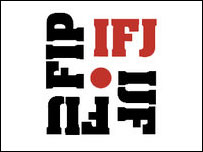
SYDNEY: The International Federation of Journalists (IFJ) is concerned that a proposed law in New Zealand will undermine the long-held right of journalists to protect the confidentiality of sources.
If the Search and Surveillance Bill proceeds in its present form, it will force the country’s journalists to answer police questions or hand over documents such as media sources and notes. Those who refuse will face penalties of up to one year in jail.
The IFJ recognises that the chairman of the NZ Parliament’s Justiceand Electoral Select Committee,Chester Borrows, acknowledged concerns about the impact of the Bill on journalists, saying it might warrant further consideration, according to reports.
The Engineering, Printing and Manufacturing Union (EPMU), an IFJ affiliate, has called for new police examination and production powers to be withdrawn from the proposed law.
“The IFJ urges the New Zealand government to act on its concerns about the Search and Surveillance Bill and make changes which protect journalists’ right to protect the confidentiality of sources,” IFJ Asia-Pacific director Jacqueline Park said.
“The law in its current form would seriously erode these long-held rights, and therefore stands to erode the democratic role of working journalists in New Zealand.”
At present, New Zealand’s Serious Fraud Office can force journalists to reveal their sources, while judges can only order a journalist to do so in restricted circumstances. The revised Bill, which was put before NZ’s Parliament on November 4, extends this power to police in cases that involve a substantial jail sentence. - International Federation of Journalists/Pacific Media Watch
Article: NZ Search and Surveillance Bill Undermines Journalists' Rights



